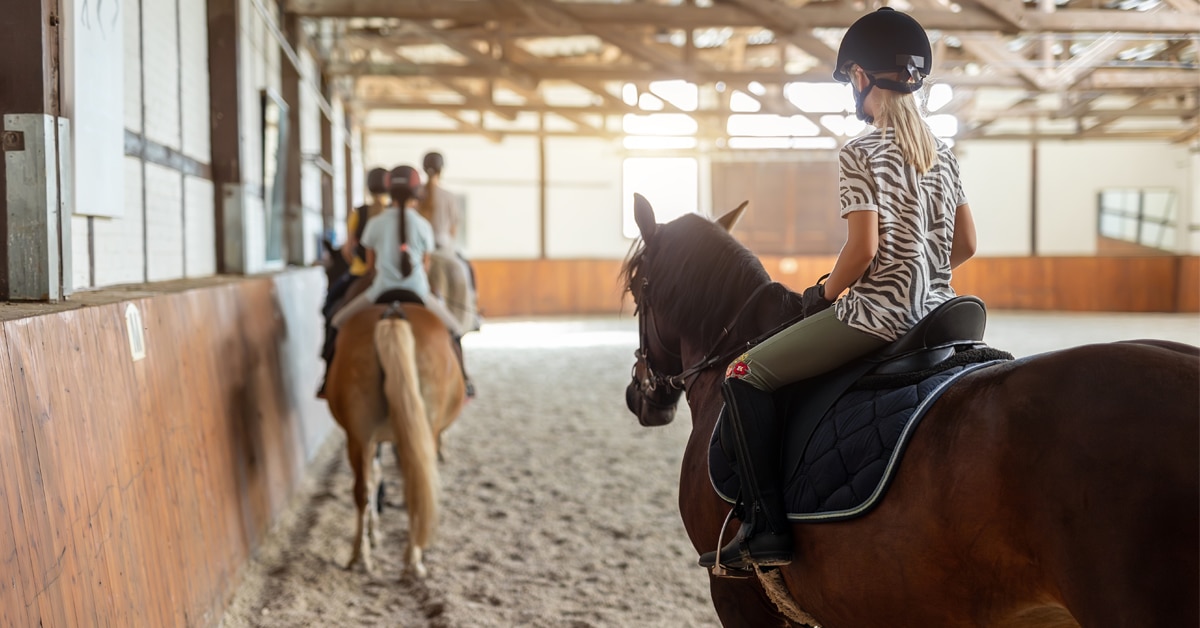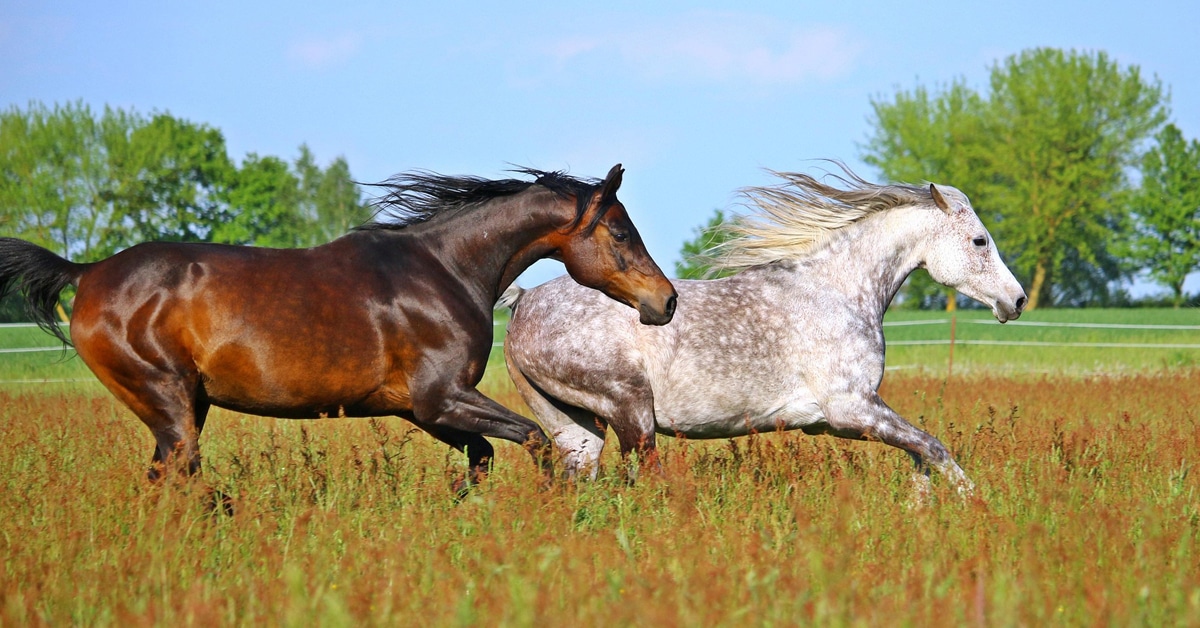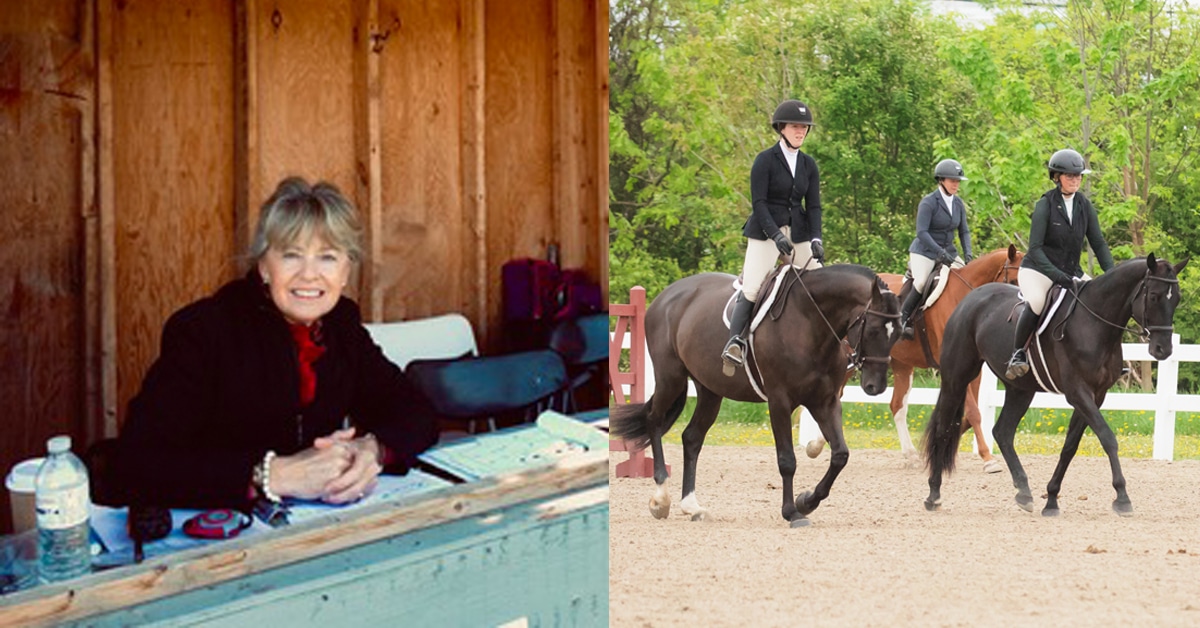The equestrian world is becoming more and more polarized these days. If you are on any kind of social media lately, you will undoubtedly see posts that are designed to shock or shame. The most extreme views are the ones that get the most likes or shares, it seems. It’s disappointing and saddening. Just scroll through your social media accounts and see if you can find one moderate middle-of-the-road post about horsemanship or equestrian sport. It’s almost impossible. Lately, there seem to be a lot of posts indirectly pitting riders against coaches.
The pro-coach side seems to imply that riders need to be more dedicated to the sport; have a stronger work ethic and be emotionally tougher and “grittier.” These posters say they want “real” riders, the ones who can withstand some criticism and tough coaching practices.
On the flip side are the posts that seem to side with the riders and want coaches to be more compassionate, more ethical, and to consider a rider’s whole well-being in their coaching plan. This side wants coaches to be trauma-informed and better educated about mental health.
Often these reasons have nothing to do with their equestrian ability or the horse they are on, but instead have to do with what’s going on in their life or in their own head.
As a therapist who works with both riders and coaches, I hear from both these camps about what’s not working in the equestrian industry. I hear the black and the white. But what I hear in the therapy office are not the either/or extreme scenarios that get played out online daily. What I hear are complicated stories of human miscommunication, misunderstanding and lack of respect for each others’ unique life experiences. What I hear in my office is often due to a lack of awareness of how mental health and well-being affect what happens in the arena between coach and rider.
While there are probably some riders who do in fact need to work harder and probably some coaches who could do with a little more empathy, many times there are reasons why an individual is not behaving in a socially acceptable or a desired manner. (That doesn’t excuse bad behaviour – it’s just an explanation)
Often these reasons have nothing to do with their equestrian ability or the horse they are on, but instead have to do with what’s going on in their life or in their own head. Riders/coaches are people and people have problems.
I’ve worked with riders that have survived horrific childhoods and still suffer from the physical and psychological abuse they endured 30 years later. It affected their ability to be fully present in their riding lessons and their ability to learn and retain information – like the order the jumps go in! In fact, some riders have told me that they dissociate during lessons or in any stressful situation like horse shows.
One rider disclosed that every time her coach yelled instructions in the arena, her brain went on a mini vacation and she became incapable of responding. This is a trauma response, not a lack of work ethic or motivation. It happens because the individual’s brain has connected yelling with childhood abuse, and this kicks off a fear response which the individual cannot control. For this particular rider, she couldn’t escape her abuser when she was young, so her brain learned to dissociate in order to endure it.
Trauma is extremely common in Canada. About 76% of Canadians have experienced at least one traumatic event in their life sufficient to cause Post Traumatic Stress Disorder¹ For some individuals and groups in Canada this statistic is sadly much higher. I believe that equestrian sports probably have a higher percentage of traumatic events given how dangerous these sports can be.
I could share dozens of stories of how trauma has created misunderstanding and miscommunication between rider and coach. But it’s not just trauma that creates challenges in human interactions.
About one in five Canadians live with a mental health condition right now² and most physicians will tell you that we have a “mental health crisis” in Canada right now. Depression/anxiety are in the top five reasons doctors see patients in primary care right now. If we look at what this means in the barn, what we will see is one in five riders/coaches coping with anxiety or depression right now.
Sadly, this statistic goes up to 58% when a rider has had a concussion³. With each concussion a rider has, the likelihood of developing depression/anxiety increases. With two concussions you are twice as likely to have depression afterwards and with three concussions you are three times as likely, and so on and so on. Concussions are damage to the brain and depending on how much damage has been done and to what parts of the brain individuals can have difficulties regulating their emotions (like anger, fear and sadness) and communicating effectively with others (particularly when there is damage to the language areas of the brain).
Depression isn’t just feeling sad. In fact, most individuals who are depressed don’t actually feel sad. Most feel kind of flat and very fatigued. Depression can cause cognitive difficulties as well as problems enjoying life. When a rider or coach is depressed, they may have difficulty remembering things, making decisions, organizing things or planning. Depression affects executive functions in the brain and individuals describe feeling “foggy”.
Understanding mental health and trauma is important to the equestrian community because these conditions can act like a lens through which the individual sees their whole world
Communication is also harder and takes more effort when an individual is depressed. Being around other people can be emotionally draining and physically exhausting when you are depressed and many individuals report feeling very irritated with other people when they are suffering with symptoms of depression (or anxiety). Civility and tact can be much harder when you are struggling to get through your day.
Understanding mental health and trauma is important to the equestrian community because these conditions can act like a lens through which the individual sees their whole world. It can change how they view themselves, other people and situations. These conditions effect how people behave in situations and how they respond to others. Sometimes they make individuals over-reactive and sometimes individuals don’t react when they probably should.
I’m not excusing bad behaviour ‒ bad behaviour is always unacceptable ‒ but I think it’s time we as an industry start paying attention to why we are seeing so much bad behaviour in our community.
As a community we need to do more to reduce stigma and shame about seeking help for mental health issues. We can all improve our communication skills and our self-awareness and compassion. Learning about trauma is a good first step.
Equestrians are all on the same side. We are all Team Horsepeople. If we all took a few steps towards the centre and stopped to ask ourselves why someone was behaving the way they are, maybe the black-and-white world of social media would become a little greyer.
Maybe I would be out of a job then… but I think it might be a good trade. 😊
***
If you, or someone you know, are struggling with depression, anxiety, PTSD or other mental health issues, please reach out to:
Canadian Mental Health Association
***
References:
- Van Ameringen M, Mancini C, Patterson B, Boyle MH. Post-traumatic stress disorder in Canada. CNS Neuroscience Ther. 2008 Fall;14(3):171-81.
- Canadian Institute for Health Research August 2023
- Charles Owen Concussion Study 2021
The Latest










